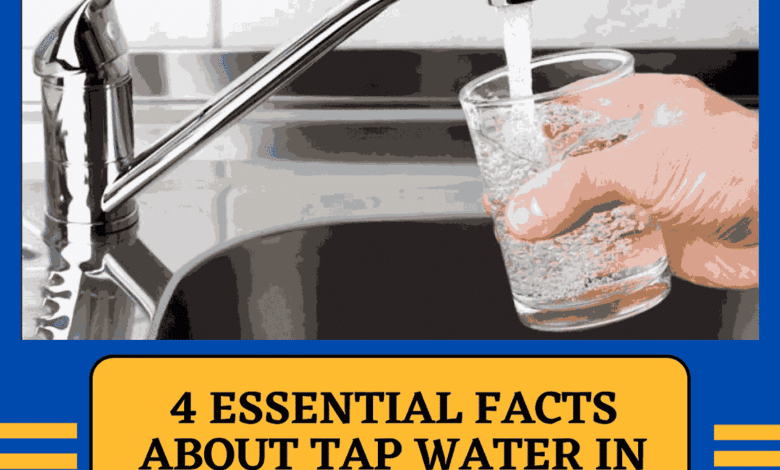4 Essential Facts About Tap Water in Germany

4 Essential Facts About Tap Water in Germany
Stay Hydrated Without Breaking the Bank: Unveiling Germany’s Tap Water Culture. Germany, renowned for its affordable beer, also boasts a tap water culture worth exploring. Here are 4 Essential Facts About Tap Water in Germany.
1. Safety First: Quality and Control
Before delving into the nuances of Germany’s tap water, it’s crucial to highlight its safety. According to the Environment Ministry, tap water, known as Leitungswasser, is of excellent quality and undergoes stringent controls, making it one of the safest food products. While differences may exist depending on the region, overall, Germany’s Consumer Centre affirms that tap water is of very good quality everywhere. However, it’s advisable to let the water run until it becomes cool, especially if it has been standing in the pipes.
2. Environmental Impact and Drinking Habits
Germany encourages the consumption of tap water not only for its safety but also to reduce plastic waste from bottled water. Despite this, many Germans still prefer bottled water, prompting calls for environmental awareness. Federal Environment Minister Svenja Schulze advocated for turning to tap water in 2019, emphasizing its flawless quality. However, the norm of serving tap water in homes and restaurants remains a work in progress, as Germans may find it unusual, and the preference for sparkling water adds to the challenge.
3. Bottled Water vs. Tap Water
While tap water quality is acknowledged, the preference for bottled water persists in Germany. Even with environmental initiatives and promises to install more water fountains, the habit of buying bottled water remains deeply ingrained. At restaurants, the practice of serving tap water is not widespread, and asking for it might elicit surprise or refusal. Breaking the anti-tap water culture is a slow process, with some establishments explicitly stating that their tap water is not suitable for drinking.
4. Water Menu
Ordering water in Germany requires awareness of the language nuances. If you simply ask for Wasser, you’ll be prompted to choose between mit oder ohne Kohlensäure/Gas (with or without gas). To specifically request tap water, use the term Leitungswasser. If sparkling water is your preference, terms like Sprudelwasser, Mineralwasser, Sprudel, or Selters convey the same meaning. For non-carbonated water, ask for Wasser ohne Kohlensäure/Gas or stilles Wasser.
In conclusion, understanding Germany’s tap water intricacies involves appreciating its safety, navigating cultural norms, and making conscious environmental choices. So, next time you’re in Germany, quench your thirst with confidence, armed with the knowledge of Leitungswasser. Prost!
Read More on How To Abroad
Grocery Shopping in Germany: Everything you need to know
Adapting to German Culture practical advice for US expats
Want to study in Germany? How To Abroad can help you achieve your academic dreams.

